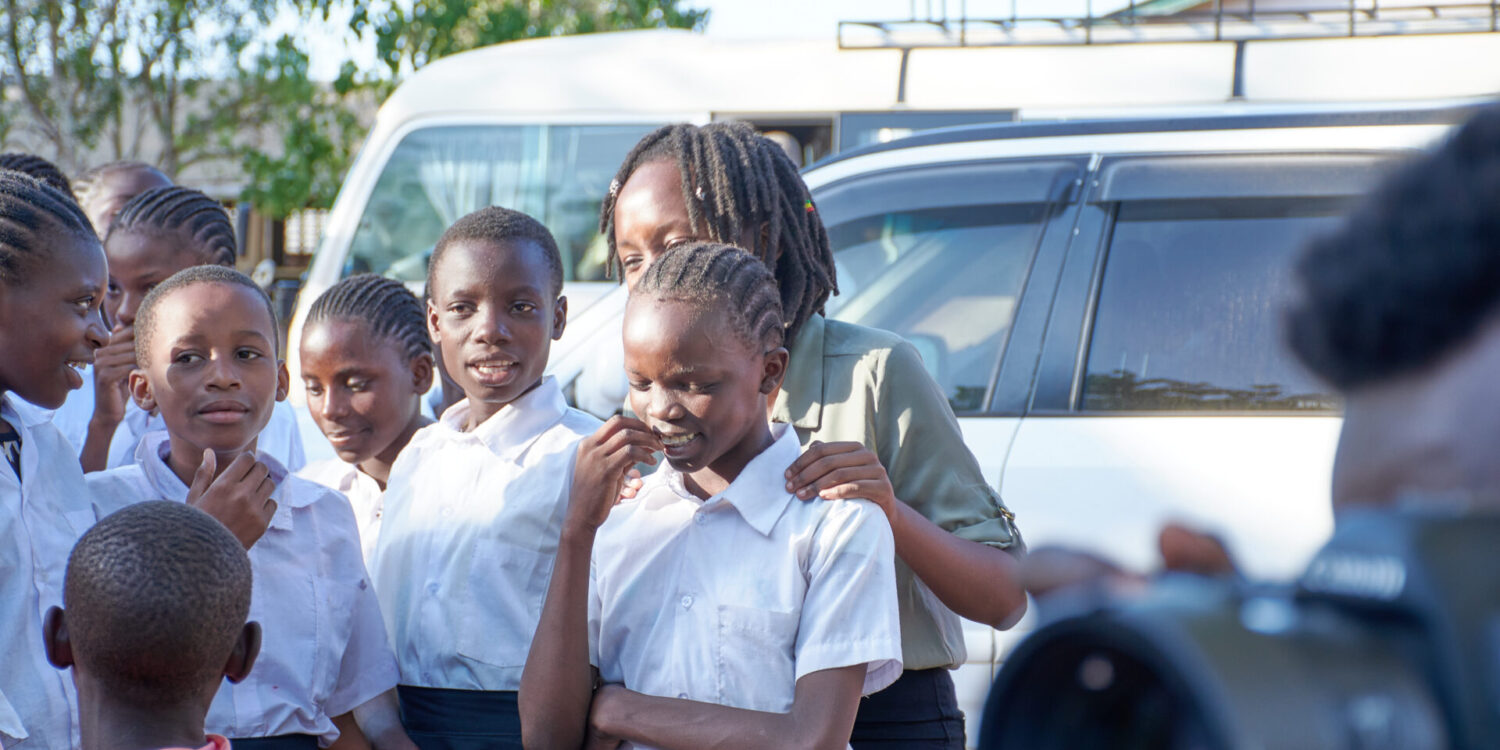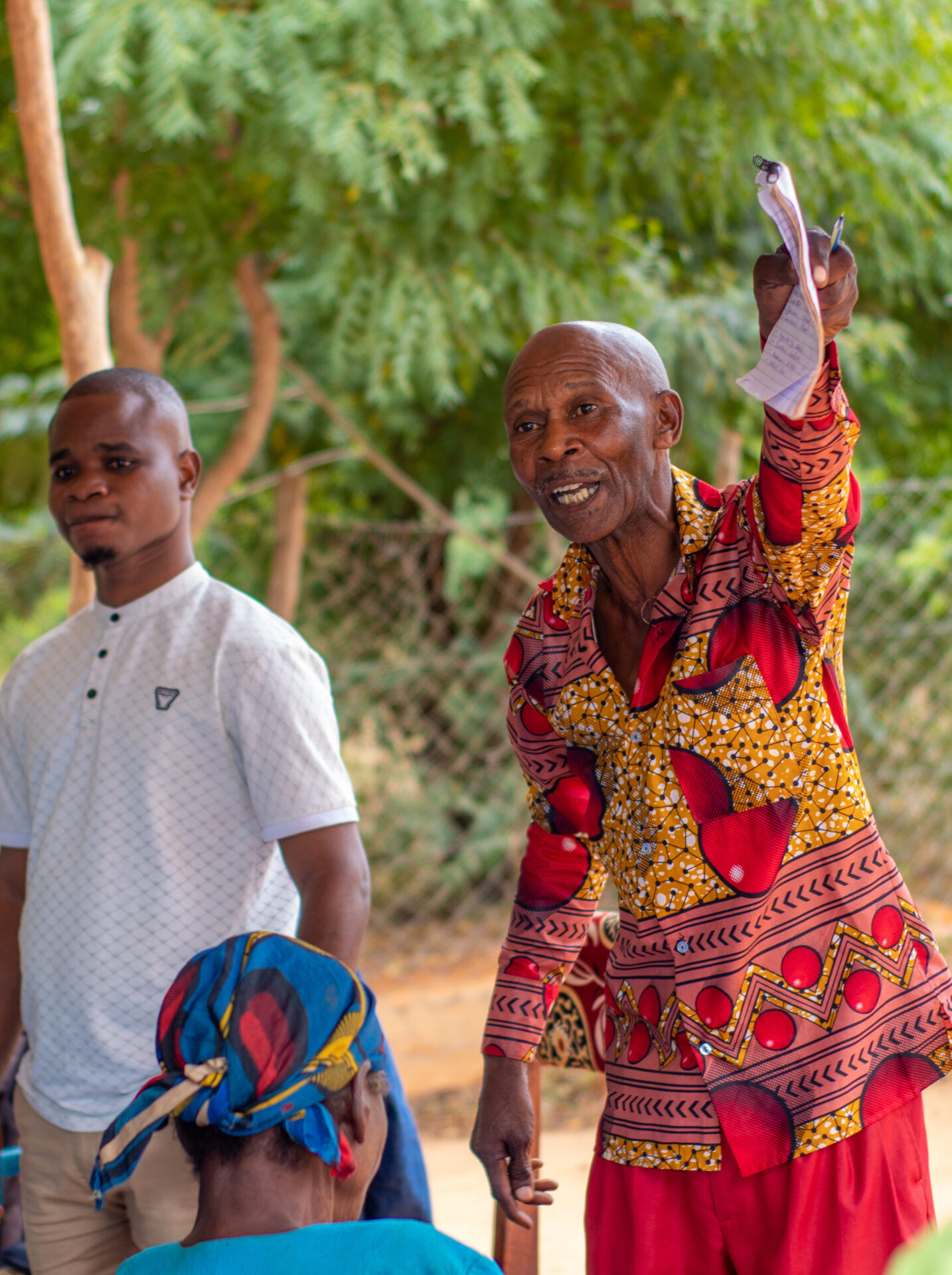For far too long, women in remote areas have struggled to be seen and heard. At the Open Institute, we’re committed to the ideal of leaving no one behind, especially those most marginalised. We have taken the view that achieving the sustainable development goals is best done at the local level – in all villages. One of the main goals of our active citizenship work is making sure that data is widely accessed and used not just by governments but by citizens.
Since we began, we have been working on finding ways that citizens can participate fully in the governance and development of their communities using data. Through Citizen Generated Data activities, we have worked with communities in Nakuru, Kilifi, Tana River, Kwale, Elgeyo Marakwet and recently Kisumu and Siaya Counties to collect data to have them use it for advocacy.
During our work in Kilifi, Tana River, and Kwale counties, we conducted in-depth interviews with women’s table banking groups and youth organisations. The findings of these studies shed light on the multifaceted challenges faced by women in these communities, from limited access to healthcare to barriers in education and finance.
Women and Healthcare
According to the Kenya Household Health Expenditure and Utilisation Survey (KHHEUS) 2018, the cost of healthcare services, distance to facilities, and the quality of care are the main barriers to seeking healthcare by women and households in Kenya. This is particularly the case for lower-income women in Kilifi County who remain underserved.
However, the county government has made progress in the development and implementation of infrastructure where an impressive 73% of health facilities are now completed and operational. Adherence to Antenatal Care (ANC) and Postnatal Care (PNC) schedules was also encouraging, with 73% attendance for ANC visits and 78% coverage for immunizations.
Nonetheless, there is a pressing need to increase the number of incinerators and improve the doctor-to-patient ratio, which currently stands at 1:3500, significantly below the World Health Organization’s (WHO) recommended ratio of 1:1000.
In our recent data collection efforts at the end of 2023 in Kilifi County, we uncovered crucial insights into maternal and child health that shed light on the challenges facing communities in this region. While there’s notable progress with 78% immunisation coverage, indicating strides in preventive healthcare, there are concerning gaps in other areas. Despite 73% of women being registered for Antenatal Care (ANC) services, only a fraction attend the recommended four ANC visits, with only 53% meeting this target, which may be due to the long distance most mothers have to cover to access these facilities. This disparity highlights the need for focused interventions to ensure pregnant women receive comprehensive prenatal care that is easy to access to reduce the risk of complications during childbirth.
Source: Open Institute Kilifi Survey
We also noted that there is limited school outreach that focuses on sex education and HIV/Aids screening which may explain the alarming rate of teenage pregnancy in Kilifi County. At least 4,091 school-going girls aged between 10 and 18 years were impregnated in Kilifi County in the first six months of 2023. This is according to a new report by the county’s health department. The report attributes the rise in teenage pregnancies to parents’ negligence and retrogressive cultural practices such as forced marriages and poverty.
Women and Education
Source: Young girls who benefited from the Garashi pad drive.
Kenya is making positive strides towards achieving Education for All aligning with Sustainable Development Goal (SDG) No. 4. The government aims to provide inclusive and high-quality education for everyone by 2030. However, the high prevalence of adolescent pregnancy has resulted in the poor education performance and school attendance of girls, with 224 school dropouts recorded in 2024 alone. Also, the Gender Parity Index (GPI) in certain areas such as technical and vocational education still reflects male dominance.
To address these pressing issues, we advocate for an expanded scope of youth and adolescent health services, recognizing the unique needs of this demographic. Moreover, the implementation of Adolescent Sexual Reproductive Health (ASRH) initiatives is paramount to providing education and services that empower adolescents to make informed decisions about their sexual and reproductive health, ultimately promoting healthier communities for future generations.
We also need to make technical and vocational education accessible to women which will lead to reduced poverty, improved maternal health. Low child mortality rates caused by adolescent pregnancies, and decreased violence against women as they can now earn a living. Research has shown that for each additional year of schooling girls receive, their future earnings can increase by up to 20%.
Women and Access to Financing
Inclusive finance is vital for women’s empowerment, yet women still face obstacles in accessing formal credit. Additionally, the lack of identification documents poses a significant barrier, with many women lacking IDs, thereby hindering their ability to access public services and participate fully in civic life. From the data we collected in 2022 – 2023 we found out that a majority of the women having no easy access to banking facilities opted to join table banking groups with the highest number being in Kilifi and Tana river county
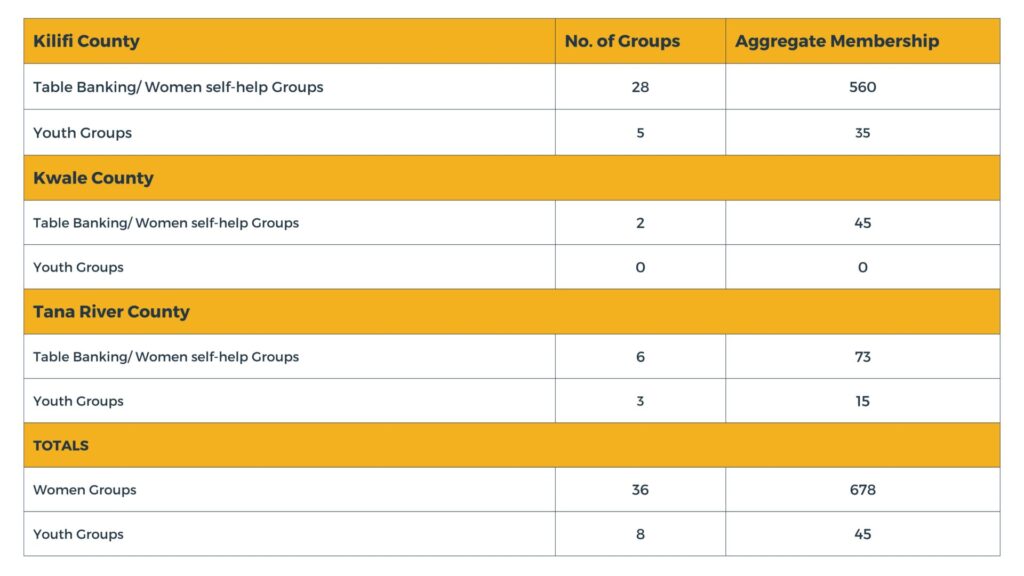
Source: Open Institute data collected in Kilifi, Tana River and Kwale counties.
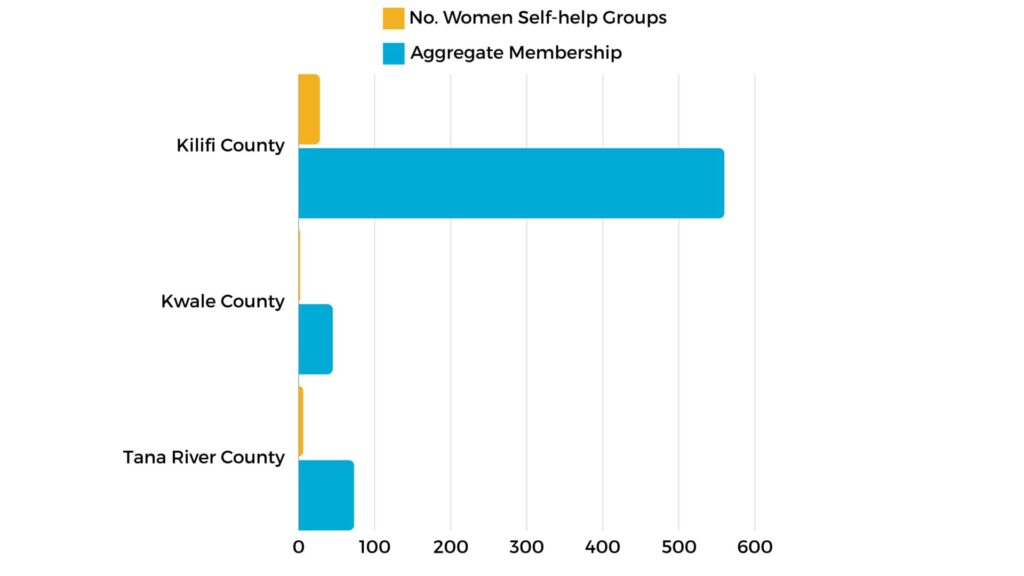
Source: Open Institute- A graph representation of data collected in Kilifi, Tana River and Kwale counties.
The citizen generated data collected over the past two years in Kilifi, Tana River and Taita Taveta Counties paints a concerning picture of identity documentation within the communities we’ve engaged with. Out of the 678 women surveyed, only 245 possessed identity cards, highlighting a significant gap in access to this fundamental form of identification. Even more troubling is the revelation that 102 women confessed to being unaware of the whereabouts of their ID cards, with no plans to replace them. Identity cards serve as gateways to public services and are essential for fulfilling one’s duties as a citizen.
Without them, individuals are deprived of the opportunity to fully participate in society, hindered in their ability to contribute meaningfully to their communities and families. Addressing this issue is crucial not only for ensuring individual empowerment but also for fostering a more inclusive and productive society overall.
What are we doing?
It is important for us to recognise the important role women play in shaping communities and promoting sustainable development. Through Maono we have been able to foster inclusion and bring together women to share, learn from each other, and access resources that can help amplify their work in their local communities.
To challenge and respond to the inequalities women face in the health, education and business sector, we are working with governments, change makers to utilise the power of citizen generated data. We’re building a world where every woman has the power to shape their lives. Through their involvement, we can successfully communicate the “on-ground realities” to decision-makers using their collected data. This data will greatly assist the Kilifi County government in identifying gaps and areas for improvement and reduce inequality in access to healthcare, education, and economic opportunities for women of Kilifi County.
One of the initiatives we’re excited to announce at our Maono Space is Maoni By Maono which seeks to amplify community voices.
This initiative launched with a powerful documentary series called Story za Jaba shedding light on the effects of muguka on women and the hidden dangers lurking beneath a seemingly harmless plant. This leafy substance continues to profoundly impact the lives of women in Malindi, Kilifi County. Zeinab, who grew up in this very community, understands this reality all too well. Here, a girl’s life path is often predetermined, leaving little room for her own choices. This harsh truth became frighteningly real for Zeinab at the young age of thirteen, when she nearly faced an arranged marriage to a wealthy family friend. If you haven’t watched it click here.
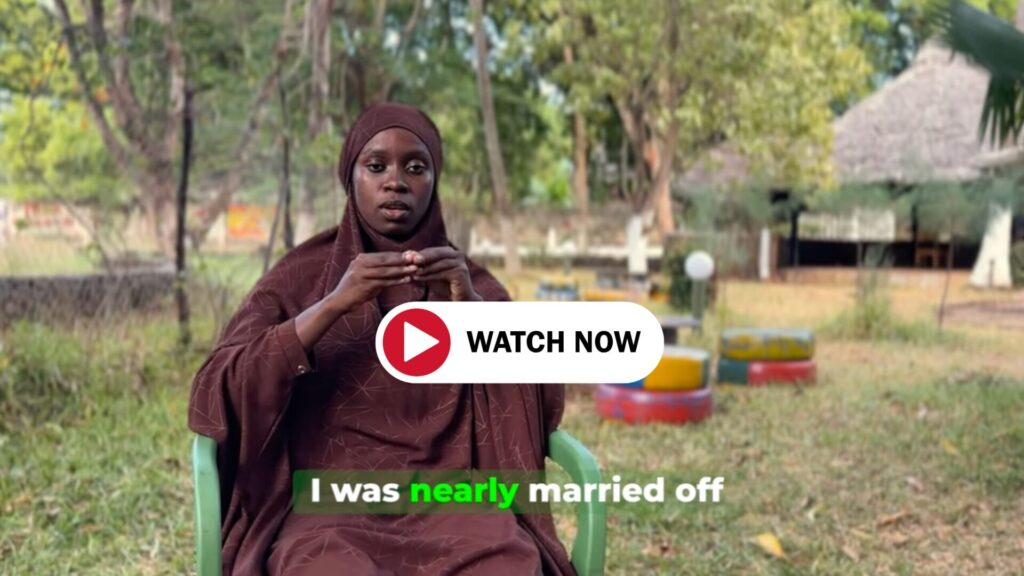
⬆️ Click to watch!
Through our work we hope to make the society better for marginalised women using citizen-generated data. Talking to people in Kilifi, Tana River, and Kwale counties has helped us understand the many challenges women face. It also reminded us how important it is for everyone to be involved in making decisions about how things should be done in their communities. We’re committed to making sure women’s voices are heard and that our society becomes more inclusive.

